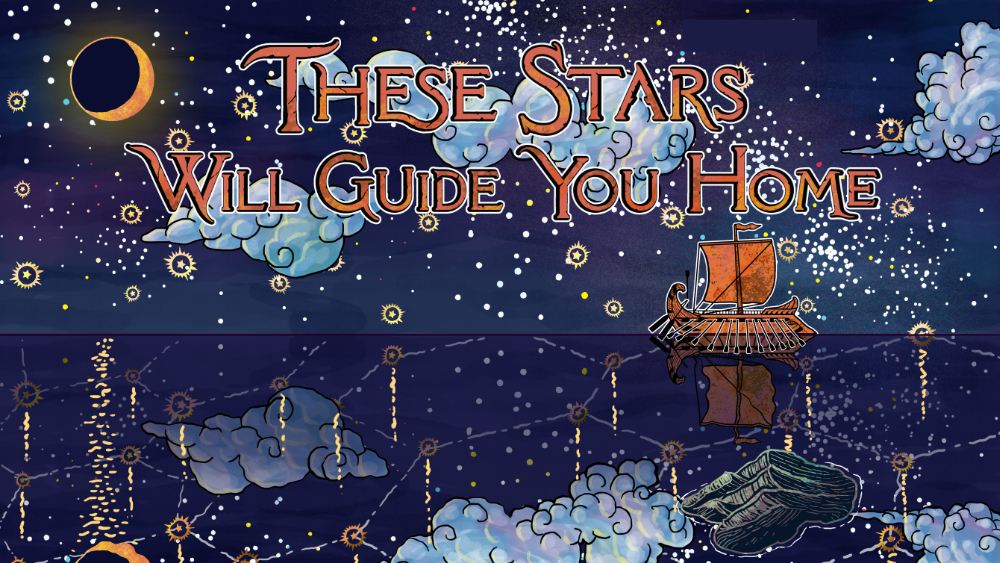
Note: this game will be crowdfunding on Kickstarter on February 7th. Sign up to be notified here.
There's a fine line, in solo games, between exploration and creation.
This is really splitting hairs, but in a lot of games where you roll the dice or draw a card to see what you find on a map, it feels to me like "creation" or "worldbuilding" as opposed to exploration. That island or city you discovered, it wasn't there a moment ago, it exists because you rolled the die. Discovery implies something exists even you *dont* find it, and so rolling dice to "discover" never really felt like exploring to me.
On the other hand, exploring a world that exists despite you seeing it can be fun, but that world can feel static, frozen in the way it was written. This can be fine on the first playthrough, but how do you create a world that feels a little bit different every time?
That's the fine line I wanted to walk with These Stars Will Guide You Home. It didn't start off with the Greek epic theme, in fact I very nearly opted for steampunk instead. This game began from the mechanics, and trying to give that feeling of exploration to players.
The first thing that was clear was that I needed to write the islands the player would explore, but that there would need to be a "dynamic" part that changed each playthrough, so the world wasnt just a static map. However, I didn't want any dice rolls or card draws. This dynamism would have to come from somewhere else.
I'm a massive fan of cartography and geography (you may have gathered from my previous games!) and something that slowly creeped in was the idea that places are very much defined by what's around them. This had to be abstracted in some way, but I decided to write the islands in These Stars with at least one "directional" element. A road leading off to the north-west, a river flowing south, a lighthouse pointing east.
In this way, the world would feel both pre-existing and "new" every time you explore it, provided one thing happened: the islands changed position each playthrough. Such that the fixed lighthouse, for example, now points to something else, and the meaning that arises from that is different.
How do you mix hexes up so that it's different every time without printing a whole bunch of pieces or really being tedious? That's what I'll be tackling in the next entry. Thanks for reading and as ever, any feedback at all is welcome even after launch on February 7th!
Did you like this post? Tell us
Leave a comment
Log in with your itch.io account to leave a comment.